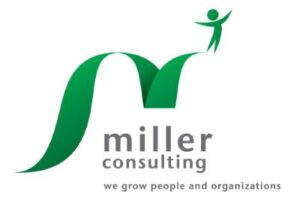
Equitable Representation – Advancing BIPOC Leadership in Local Government
The Municipal Management Association of Northern California (MMANC) is proud to present our inaugural Equity Summit, the Winter Forum, focusing on “Equitable Representation: Advancing BIPOC Leadership in Local Government.” This groundbreaking event is dedicated to fostering dialogue, sharing insights, and promoting strategies towards achieving greater diversity, equity, and inclusion within local government leadership. It represents a significant step forward in our collective efforts to create more inclusive communities and governance structures.
For information on Definitions, Terminology, and why we use “BIPOC,” please see the section below the program.
Sold Out!
Friday, March 15, 2024
Doors Open: 8:30 AM
Program Begins: 9:30 AM
Close of Programming/Dismissal to Networking Event: 5:00 PM
Sonoma State University – Student Center – 3rd Floor Ballrooms
1801 East Cotati Avenue
Rohnert Park, CA 94928
Program Information
| Time | Program Information |
|---|---|
| 8:30 am | Light Breakfast and Networking |
| 9:30 am | Welcome, Opening Remarks, and Land Acknowledgment |
| 9:50 am | Opening Keynote Speaker – john a. powell
john a. powell is Director of the Othering and Belonging Institute and Professor of Law, African American, and Ethnic Studies at the University of California, Berkeley. He was previously the Executive Director at the Kirwan Institute for the Study of Race and Ethnicity at the Ohio State University, and prior to that, the founder and director of the Institute for Race and Poverty at the University of Minnesota. john formerly served as the National Legal Director of the American Civil Liberties Union (ACLU). He is a co-founder of the Poverty & Race Research Action Council and serves on the boards of several national and international organizations. john led the development of an “opportunity-based” model that connects affordable housing to education, health, health care, and employment and is well-known for his work developing the frameworks of “targeted universalism” and “othering and belonging” to effect equity-based interventions. john has taught at numerous law schools including Harvard and Columbia University. His latest book is Racing to Justice: Transforming our Concepts of Self and Other to Build an Inclusive Society. |
| 10:35 am | Break |
| 10:45 am | Equity Panel | Bridging the Gap: From Root Causes to Equitable Solutions in Leadership
This session, led by Equity Leaders, will focus on identifying barriers and implementing strategies for creating inclusive leadership. Endeavour into a safe and vulnerable discussion that aims to identify the root causes of lack of representation and unequitable career opportunities and advancement such as self-imposed barrier, institutional barriers, and societal biases. Attendees will leave with a practical roadmap for fostering diversity and inclusion within their organizations. Moderator Speakers |
| Noon | Lunch |
| 1:00 pm | Breakout Session | Unity in Diversity: Collaborative Pathways for National Equity Groups in Public Administration
This session explores how affinity groups like the International Network of Asian Public Administrators (I-NAPA), and the Local Government Hispanic Network (LGHN), and the National Forum for Black Public Administrators (NFBPA) can unite for systemic change. This session will identify ways to transcend silos, sharing strategies for collaboration that amplify the impact on equity and inclusion. Led by a panel of board members and moderated by a seasoned public administrator, attendees will discover actionable approaches to forge alliances and drive meaningful advancements in public administration diversity and representation. Moderator Speakers |
| 1:00 pm | Breakout Session | Building Blocks for Equity: Crafting and Implementing Your DEI Team
This session offers a practical guide to establishing effective Diversity, Equity, and Inclusion (DEI) teams. This interactive session, led by Chief Equity Officers, will delve into the steps for creating DEI teams and executing adaptation plans. Participants will learn about team formation, goal setting, navigating obstacles, and evaluating progress. Ideal for those looking to initiate or enhance DEI initiatives, the workshop provides actionable insights and tools for fostering inclusive organizational change. Moderator Speakers
|
| 2:15 pm | Break |
| 2:30 pm | Breakout Session | Leadership in Action: BIPOC Executives Shaping the Future of the North Bay and North Coast
“Leadership in Action” showcases BIPOC executives from the North Bay and North Coast, sharing their leadership experiences and efforts in advancing equity and inclusion. This session offers insights into navigating challenges, driving systemic change, and the impact of diverse leadership in community and organizational settings. Attendees will gain practical advice and inspiration for fostering inclusive environments and advocating for equitable representation in leadership roles. Moderator Speakers |
| 2:30 pm | Breakout Session | Empowering Diversity: An Institute for Local Government Interactive Workshop
“Empowering Diversity” is an interactive ILG workshop on enhancing workforce diversity, equity, and access in local government. This session will feature interactive discussions and activities around strategies to help public agencies tackle hiring and retention challenges to create inclusive workplaces. Discussions will focus on ways to increase pathways into public service for underrepresented populations and building partnerships to support outreach and increase equity in employment. Speakers: |
| 3:45 pm | Break |
| 4:00 pm | Closing Keynote – Tiffany Hoang Tiffany Hoang is an executive synergist and co-founder of CircleUp Education. She brings her life experiences and hundreds of hours of consulting experience into every service she facilitates. She encourage communities to lean into sharp points so healing can begin. |
| 4:50 pm | Closing Remarks |
| 5:00 pm | Networking and Post-Event Mixer Ice Cream Social & Happy Hour |
Event Sponsors







Definitions and Terminology
As we gather for the Equity Summit, establishing a shared vocabulary is essential for our explorations into diversity, equity, inclusion, and belonging. Here are the definitions of key terms foundational to our discussions:
- Diversity: Represents the myriad differences among people, including race, ethnicity, gender, age, national origin, religion, disability, sexual orientation, socioeconomic status, education, marital status, language, physical appearance, and diversity of thought, ideas, perspectives, and values.
- Equity: The commitment to ensuring fair treatment, opportunity, and advancement for all, actively identifying and eliminating barriers to full participation for underrepresented or marginalized groups.
- Inclusion: The practice of creating environments where any individual or group can be and feel welcomed, respected, supported, and valued, enabling full participation.
- Belonging: The experience of security and support when there is a sense of acceptance, inclusion, and identity, fostering a culture where individuals can express their true selves.
- Access: Refers to the degree to which individuals and groups can obtain and use information and services, emphasizing the removal of barriers to full participation.
- Anti-Racism: An active process of identifying and eliminating racism by changing systems, policies, practices, and attitudes, redistributing power to share it equitably.
- BIPOC: Stands for Black, Indigenous, and People of Color, highlighting the unique history, experiences, and systemic inequities faced by these groups, distinct from broader experiences of people of color.
- Land Acknowledgement: A formal statement that recognizes and respects Indigenous Peoples as traditional stewards of this land and the enduring relationship that exists between Indigenous Peoples and their traditional territories. It acknowledges the historical and ongoing injustices that Indigenous Peoples endure and the need to honor and respect their legal and moral rights to their lands.
The Significance of Our Terms
Adopting this terminology allows us to:
- Engage in discussions that honor and respect the diverse experiences and perspectives of all community members.
- Pursue actions that recognize and dismantle systemic barriers to equity, inclusion, and access.
- Create environments, both at the summit and in our broader communities, where diversity is celebrated, and every person experiences belonging and recognition.
By establishing this common language, we set the stage for meaningful dialogue and collective action aimed at building a society that values justice, equity, and respect for all people and their histories.
Why We Use “BIPOC”
The term “BIPOC” is intentionally used in our summit discussions to emphasize the distinct experiences and systemic challenges faced by Black, Indigenous, and People of Color. Unlike broader terms that may not capture the nuances of racial injustice, “BIPOC” seeks to highlight the specific histories, inequalities, and resilience of Black and Indigenous communities, along with other people of color. It serves as a reminder of the need for targeted actions to address these systemic inequities and supports our commitment to advancing a more inclusive and equitable society.
Using “BIPOC” underscores our dedication to:
- Acknowledging Historical and Ongoing Injustices: Recognizing the specific oppressions and contributions of Black and Indigenous peoples, distinct from the broader experiences of racial and ethnic minorities.
- Promoting Targeted Equity Efforts: Focusing on tailored strategies that address the unique challenges faced by BIPOC communities in achieving true equity and inclusion.
- Fostering Inclusive Dialogue and Action: Ensuring that our conversations and initiatives reflect a deep understanding of diversity within the framework of racial and social justice.
By incorporating “BIPOC” and other critical terms into our shared language, we aim to create a summit environment that not only respects and values the diversity of experiences among us but also actively works toward dismantling the structures that perpetuate inequity. Through this approach, we commit to a path of learning, growth, and collective action towards a more just and inclusive world.


